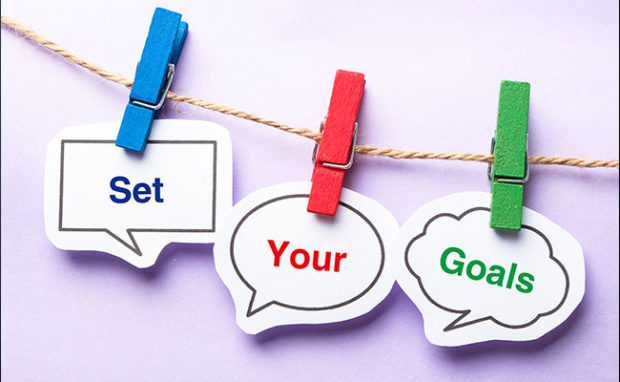Best Way to Learn a New Language
The mere thought of the kind of effort you need to put into learning a new language can be quite frustrating. You need to learn a whole new set of words and phrases. Even worse, without the right pronunciation, you might end up saying one thing while meaning another.
Lucky for you, mastering a foreign language is as simple as taking a single step at a time.
You can learn new words today and a few more tomorrow and by the end of the month, you are a pro at it. With the right tips and learning tools, it can become pretty easy to get comfortable speaking a foreign tongue.
Here are a few insights on learning to speak a language fast:
Start With Setting Your Goals

Why do you want to learn a foreign language in the first place? Starting to learn a language without a goal will make the task look quite mountainous.
The trick is to set small milestones that you can achieve on a daily or weekly basis.
For instance, your goal can be to learn 30-50 new words in a week. However, your goals ought to be easily attainable. Otherwise, you will discourage yourself.
Also, feel free to challenge yourself. Trying to go past the 50 word limit in a week might actually be quite attainable once you start getting comfortable with the language.
Lastly, write down your goals. This will act as a reminder of each milestone you want to achieve within that week.
You can write the goals on a diary or even on a sticker that you are to stick to your door. As you continue to refine your language skills, consider updating your goals to the level you are currently in.
Schedule Your Time

To get comfortable with learning a foreign language and speaking it, you need to put in the time. In most cases, people might think that scheduling long study sessions will be enough to learn a new language, but the opposite will actually work best. The trick is to schedule short and intensive study sessions.
The big break between language study sessions ensures that you can have enough time to understand the language.
For instance, you can schedule a twenty-minute session to learn French in the morning and schedule another at lunch.
If you feel that you will have a busy day, list down your day’s activities and look for ways to create time for the language.
For extremely busy days, revisit materials that you have already learned instead of learning new things.
This is way better than not learning anything at all. Lastly, every study session should have a concrete goal.
You can, for instance, say that you will be learning grammar in the morning and listening to a podcast in the evening.
Leverage the Power of Repetition

While learning by rote might work when preparing for exams, it only takes language learners so far.
Ideally, you need to internalize and understand everything about your language, and repetition is often the best solution. The more you can repeat a word, the easier it will be to remember it.
However, how you structure your repetition schedule also matters a lot. A great option would be to leverage the spaced repetition method.
This involves scheduling review sessions that are further apart each time. For instance, you can start by revisiting specific grammar rules after an hour, and the next session can be after a day.
You can schedule the last review sessions at the end of the week.
To eliminate the redundancy of repetition, look for ways to spice up the review sessions.
While the first session can be all about learning Spanish words in written form, the next one could be about listening to a podcast that deals with the same words.
Test Yourself on The New Words You Just Learned

Tests will give you a challenge, which is often enough motivation to keep learning the language.
For most languages, textbooks tend to have simple tests at the end of each chapter. Do these tests to sharpen your skills fast.
Once you are deep enough into learning the new language, look for online tests. Languages like French, German, Spanish and Japanese tend to have free tests online.
For a stronger challenge, consider doing any of the standardized tests. Every language tends to have bodies that help teach it internationally, like the Goethe Institute for German.
Enrolling for such placement exams will help you determine the level you currently lie in. Most of these tests also come with certification, which can be proof enough to an employer or friend that you are indeed conversant with the language.
Put the Language into Real-Life Use

The best way to improve your speaking skills is to place yourself in situations that need you to speak the language.
Among the best ways is to study abroad so that you can interact with native speakers. Enrolling for language exchange programs might help.
There are also many other ways to apply the language in real life without having to study abroad.
Look for communities or activities that are filled with people who use it as their native language.
For instance, interacting with a native speaker in a community center or charity event will present you with enough practice. An even less intensive approach would be to form a partnership with another student still looking to learn the language.
You can meet up on a daily or weekly basis to speak the language and polish up your pronunciations.
However, to promote progress, avoid making fun of your partner’s mistakes or claiming that the language is difficult.
While starting off, you are bound to make mistakes, but this changes as you get used to speaking the language.
Use Your Phone to Improve Your Learning Pace

If you are constantly using your phone, then this could work to your advantage. Why not change the language settings on your phone into the language you are trying to learn? While it might be tough to transition into learning the new language at first, you will get used to it soon.
Furthermore, this provides a passive way to learn the language. Also, look for applications that will help you polish up your skills.
For instance, downloading a language learning app or a dictionary can go a long way into refining your speaking skills.
If you want to speak English, having a dictionary that translates between the language and your native tongue will help you learn new words as soon as needed.
Other alternatives would be to download podcasts in the new language and even change the language of your local news sites.
The trick is to look for ways to increase your interaction with the new language.
Related Articles
Have Fun Learning the Language

As long as you have fun learning the new language, there will barely be any glass ceilings for you.
It becomes quite easy to use it in your daily life, and you will actually look forward to starting speaking the language. Start by learning the vocabulary of your favorite hobby.
If you like playing basketball, learn the term for words like shooting, passing, basketball court and even a ball.
Being able to speak proficiently about a specific topic will encourage you to learn about other topics too. Also, look for ways to gamify learning the language.
A good option would be the Duolingo application that offers small games and milestones to make learning a language fun.
You can also consider playing language-related games such as scrabble to sharpen your skills.
Lastly, attend fun social events in which the language is spoken throughout.
For instance, you can go with friends to watch German plays, or even contribute to such events.
Learning new languages opens up your doors to a world of new opportunities.
The mere fact that you have the ability to interact with people from different parts of the world can give you an advantage both when traveling and looking for a job.
Leverage the tips above to speak the language fluently within no time.







